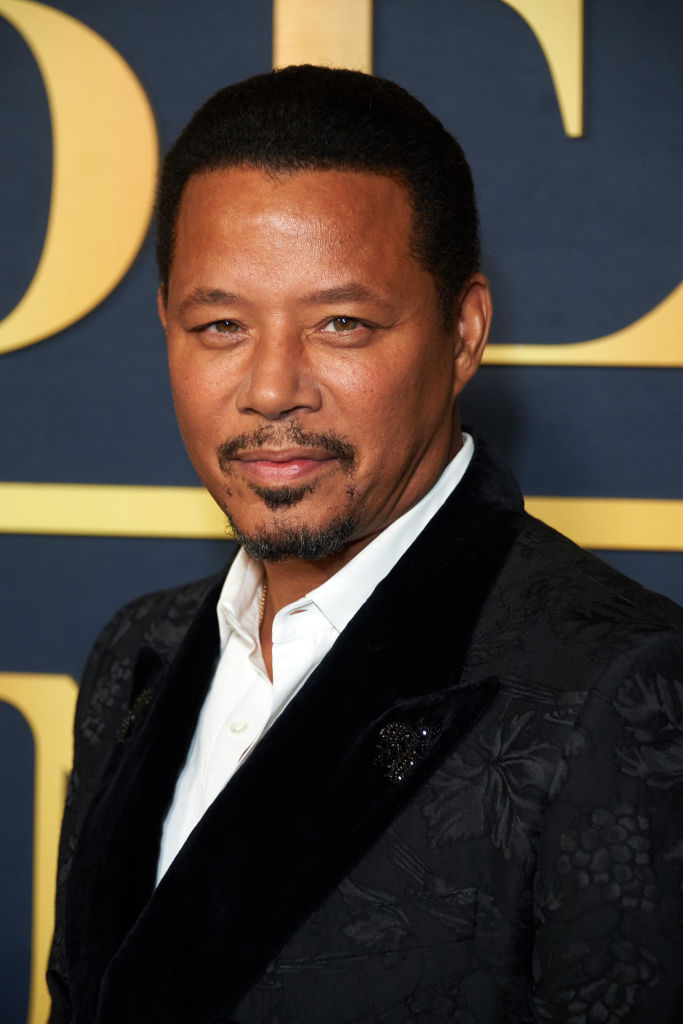A Deep Dive Into His IQ

Terrence Howard is a multifaceted talent in the entertainment industry, blending his skills as an actor, producer, and musician. Known for his captivating performances in films like "Crash" and the television series "Empire," he has consistently garnered acclaim for his work. However, one question that often arises is about his intellect, specifically his IQ. As audiences become increasingly fascinated with the lives of celebrities, understanding their intelligence becomes equally important as appreciating their artistry.
The curiosity surrounding Terrence Howard's IQ stems from his exceptional ability to navigate complex roles and his innovative approach to acting. Not only does he bring characters to life, but he often draws from a deep well of emotional and intellectual resources. This ability raises questions about his cognitive capabilities and how they may contribute to his success in a highly competitive industry.
As we explore the intricacies of Terrence Howard's IQ, we will also delve into his background, career milestones, and personal life. This examination will not only reveal more about the man behind the roles but also offer insights into how intelligence can manifest in various forms, from artistic expression to problem-solving abilities.
What is Terrence Howard's Biography?
Terrence Howard was born on March 11, 1969, in Chicago, Illinois. He grew up in a challenging environment, which shaped his outlook on life and influenced his career choices. He attended the prestigious Pratt Institute, where he studied chemical engineering before making the leap into acting. His journey from the streets of Chicago to Hollywood is a testament to his resilience and determination.
Terrence Howard's Personal Details and Bio Data
| Detail | Information |
|---|---|
| Name | Terrence Dashon Howard |
| Date of Birth | March 11, 1969 |
| Place of Birth | Chicago, Illinois, USA |
| Occupation | Actor, Producer, Musician |
| Notable Works | "Crash," "Empire," "Iron Man" |
| Education | Pratt Institute (Chemical Engineering) |
| Height | 6 ft (183 cm) |
What Are the Indicators of Terrence Howard's IQ?
While there is no publicly available IQ score for Terrence Howard, several indicators suggest that his intelligence is above average. These include:
- Analytical Skills: His ability to dissect complex scripts and portray nuanced characters demonstrates a strong analytical mindset.
- Problem-Solving: Howard has faced numerous challenges in his career, from personal struggles to industry hurdles, yet he continues to find innovative solutions.
- Artistic Intelligence: His talent in music and acting showcases a different dimension of intelligence, one that is often overlooked.
How Has Terrence Howard's IQ Influenced His Career?
Terrence Howard's intellectual capabilities have played a significant role in shaping his career trajectory. His performances often reflect a deep understanding of human emotion and motivation, allowing him to connect with audiences on a profound level. For instance, in his role as Lucious Lyon in "Empire," Howard's ability to convey vulnerability alongside power showcases his emotional intelligence.
Can Emotional Intelligence Be Measured Alongside IQ?
Absolutely. Emotional intelligence is a crucial component of overall intelligence, particularly in the performing arts. It involves the ability to recognize and manage one’s own emotions while also empathizing with others. In Howard's case, his emotional intelligence allows him to inhabit characters fully, creating performances that resonate deeply with viewers.
What Challenges Has Terrence Howard Faced?
Despite his success, Terrence Howard's journey has not been without its challenges. He has faced personal issues, including legal complications and tumultuous relationships. These experiences have provided him with a wealth of life lessons, which he often channels into his work, adding depth and authenticity to his performances.
How Does Terrence Howard View Intelligence?
In various interviews, Howard has expressed his belief that intelligence is not solely defined by academic achievements or standardized tests. He emphasizes the importance of creativity, emotional understanding, and adaptability in navigating life's complexities. This perspective highlights the notion that intelligence is multifaceted and can manifest in various forms beyond traditional metrics.
What Legacy Will Terrence Howard Leave Behind?
As Terrence Howard continues to evolve as an artist, his legacy will likely be defined by his contributions to film and television, as well as his unique approach to intelligence. By challenging conventional notions of IQ, he encourages fans and aspiring artists alike to embrace their individuality and explore the depths of their creativity.
In conclusion, while the exact figure of Terrence Howard's IQ may remain a mystery, the evidence of his intelligence is evident in his work and life. His journey is a reminder that intelligence is not a one-size-fits-all concept but rather a rich tapestry of skills, experiences, and emotional depth. As we celebrate his achievements, we also recognize the broader implications of what it means to be truly intelligent in today's world.
ncG1vNJzZmivp6x7o77EnKKepJxjwqx7w6KqnKemmr%2BmsJRoq56qopq7pLGMoaawmaKZeqq9jaGrpqQ%3D
